Ford and Volkswagen Might Make NAIAS Their Big Coming-out Party
Ford and Volkswagen, two auto giants who spent much of 2018 making eyes at each other and playfully batting away rumors (and sparking a few of their own), might lay their relationship bare in Detroit next week.
The two automakers have already signed a Memorandum of Understanding, partnering initially with the aim of developing joint light commercial vehicles. But that was just the start. Over the course of the past year, this partnership grew to include pickup swaps, electric vehicle platform sharing, joint U.S. plants, and God knows what else — at least according to rumors. Both companies made it clear something big was brewing, but always fell back to a “we’re just talking” line.
Now, it looks like we have a time and place for the announcement.
QOTD: Which Entrant Is Losing at the Game of Trucks?
You hear it time and time again on the internet. “There are no bad cars today.” It’s proclaimed by those who lived through the Malaise Era and have personally experienced the build quality and reliability of an new Renault Le Car or Chevy Monza. And while things are most definitely better than they were, nothing’s perfect. Bring out your critical fingertips.
Rebirth, or Looming Fizzle? The Station Wagon Had a Pretty Good Year in 2018
In the absolutely superb 1949 war film Twelve O’Clock High, a doctor stationed at a U.S. Army Air Force base in WW2 England uses an interesting comparison when describing a character’s mental breakdown.
“Have you ever seen a light bulb burn out? How bright the filament gets right before it breaks?”
A similar phenomenon could be at work in a certain vehicle niche, one which gets more press than actual sales warrant. The lowly, reviled, and suddenly revered station wagon, now referred to in terms meant to dispel the stodgy family hauler image of decades past.
Losers and a Few Winners: Here's the Cars That Bucked the Trend in 2018
Don’t worry, it isn’t a long list. You won’t be here all day. While the industry coasted to a surprising, yet slight, year-over-year volume increase in 2018, automakers can’t thank America’s desire for traditional passenger cars for eking out a win. Light trucks carried the day, with car sales plunging to new lows. Industry-wide, U.S. car sales sank 13.1 percent in 2018, pushing their share of the market to just over 31 percent.
Within this soup of sales, a handful of conventional passenger cars exist that held their ground, straining mightily against gale force headwinds. Maybe it’s a futile battle, but it’s worth noting these survivors.
A Decade After the Recession (and the Car's Last Hurrah), Light Trucks Continue Gaining Ground
Ten years of lost time has a way of diminishing past events, even one so extreme as the global financial meltdown of 2008-09. It also pushes aside memories of a lot of vehicles that still lingered on the market a decade ago.
At the time, the U.S. economy found itself in freefall. Unemployment rose like a Saturn 5 rocket bound for lunar orbit, gas prices spiked as oil suddenly gained the value of a icy cold canteen on a desert island, and auto sales tanked like Lindsay Lohan’s career. Trucks and SUVs, which were gaining ground throughout the 2000s, ceded territory to passenger cars as the overall industry shed 3 million sales in 2008. The following year brought the worst of it, followed by a steady climb out of the depths. Happier days, just not for traditional passenger cars.
What a difference a decade makes.
Could Norway's EV Adoption Signal Our Own Electric Future?
Perhaps — but Norway treats EV owners like royalty.
Battery electric vehicles are not subject to most of that country’s automotive taxes, are subsidized via credits, and are frequently offered free parking and charging points as a way to further encourage drivers to get away from gasoline and diesel. Norway is also working aggressively toward banning all gas-powered vehicles by 2025.
According to Reuters, the strategy is working. The independent Norwegian Road Federation (NRF) said Wednesday that electric cars rose to 31.2 percent of all sales last year. EVs represented 20.8 percent of the country’s overall sales in 2017 and just 5.5 percent in 2013.
QOTD: Sailing Past Sinking Ships in 2019?
Last Wednesday, our Question of the Day asked which automaker you wished well in 2019. Today we take a different approach, and ask which automaker doesn’t need any of your positive internet thoughts and prayers.
China Readies Rigid Auto Investment Rules for 2019
Despite spending a fortune supporting burgeoning automotive manufacturers and opening its door to foreign enterprises, China’s state planner has approved strict new regulations on investments within the industry.
Following a handful of draft proposals earlier this year, China’s National Development and Reform Commission (NDRC) announced it will ban new independent businesses that make only traditional combustion engines while continuing to push for more “new energy” vehicles.
The People’s Republic has what some might call a bit of a pollution problem. But it’s also one of the largest and fastest-growing battery producers in the world; state policy aims for the widespread adoption of electric vehicles. Unfortunately, this left China with hundreds of automotive startups that will never become profitable just as the country enters an economic downturn and its first year of negative car-sale growth in decades.
Tesla Leasing Partner Embroiled in Financial Trouble
Tesla’s Dallas-based leasing partner, MUSA Auto Finance, finds itself in a tough spot. Apparently, the business is having trouble keeping up with all the business the automaker is doing. Founded in 2016, MUSA joined up with Tesla in June of this year. However, it has reportedly been unable to finance new leases since October.
According to Automotive News, Tesla caused MUSA’s leasing volume to increase by a factor of six between August to September. As of December, MUSA dealer clients said lease approvals have yet to resume — leaving some dealer partners up a creek without a paddle and some customers without their car.
Tesla Workers Are Attempting to Unionize Again
Employees at Tesla’s solar-panel factory in Buffalo, New York, are launching a drive to unionize with the International Brotherhood of Electrical Workers and the United Steelworkers. The campaign aims to unify about 300 production and maintenance employees at the the facility. If it succeeds, it will be the first time the automaker has failed to stop its staff from organizing inside the U.S.
The EV manufacturers’ labor force wants the same thing we all want — more money. Many claim that Tesla offers unfair wages and believe collective bargaining is the only road to higher pay.
Ford Launches Phase One of Its Restructuring Plan; Changes Target Money-losing European Arm
Ford Europe announced it had shuffled its leadership on Friday as part of a larger restructuring plan, appointing executives in Germany and the United Kingdom to oversee “ Sprint to 6 Reset and Redesign.” The strategy seeks to achieve a 6 percent EBIT (earnings before interest and taxes) margin, investing only in products and services that it believes best support long-term, sustainably and profitable business.
“Ford is implementing key leadership and organizational changes to improve the fitness and agility of its European operations as it undergoes a fundamental reset and redesign of its business,” the company said in an announcement that emphasized creating operational agility.
While the full scope of the plan has yet to be announced, layoffs and factory closings seem highly probable. Ford said announcements concerning the details of the restructuring are expected between now and the beginning of 2020. Europe is expected to be the primary focus during the initial months, however. Ford Europe lost nearly $250 million in the third quarter of 2018, significantly worse than it managed in 2017. The company now expects to see a net loss for the region this year.
25k or No? Ford CEO Discounts Job Loss Claims
Earlier this week we mentioned that Ford’s restructuring plan might closely mimic General Motors’ strategy — resulting in widespread job losses. That theory was backed by an analysis from Morgan Stanley, which presumed the Dearborn-based automaker is likely to surpass GM in terms of layoffs, based on how much each intends to free up. Back in July, Ford said it would spend roughly three to five years on its $11 billion restructuring. All told, the financial services company believes the Blue Oval might shed at least 25,000 positions.
In the report’s wake, Ford CEO Jim Hackett is urging everyone not to panic. On Tuesday, he said Ford never provided numbers to Morgan Stanley analyst Adam Jonas, who estimated the significant employee reduction just one day earlier.
Ford Running Out of Focus Sedans; What About Jobs?
Ford’s decision to abandon sedans and non-utility hatchbacks is quickly coming to a head. While the choice rubbed many of us the wrong way, we attempted to view the situation through the lens of business and urged everyone not to panic if they wanted to purchase a Fusion or Focus sedan before they were all gone.
While we’re still not going to tell you not to panic, you might want to start making some moves if you’re still interested. Michael Martinez, Automotive News’ go-to guy for all things Ford, just claimed that the automaker only has about 12,000 Focus sedans left in its inventory.
Trade War Watch: Trump Says China Will Remove Car Tariffs, China Claims Nothing
Last night President Donald Trump tweeted that China had agreed to reduce tariffs. While The People’s Republic already lowered tariffs over the summer, it chose to cut the United States out of that deal as trade relations worsened. In fact, America found itself subject to an increased, 40-percent fine on imported autos while the rest of the world saw their tariffs (partially) eased. But the president seems optimistic.
“My meeting in Argentina with President Xi of China was an extraordinary one,” Trump explained in a follow-up post. “Relations with China have taken a BIG leap forward! Very good things will happen. We are dealing from great strength, but China likewise has much to gain if and when a deal is completed. Level the field!”
Meanwhile, China remains silent on the matter.
Fiat Chrysler Substituting Fiat Production, Adding More Jeeps in Italy
During Fiat Chrysler CEO Sergio Marchionne’s final days, he said his company would begin prioritizing Jeep production in Europe. This of course comes at the expense of the Fiat brand, which lost a sizable hunk of the European market after 2009 and appears to be outright failing in the United States.
While the brand gained back some of that lost ground east of the Atlantic over the past two years, Fiat’s Jeep stablemate took off like a rocket after 2013 — effectively tripling its share of the European market. Eager to cater to the ever-changing tastes of consumers, FCA is going to stick with Jeep and make some money. As a byproduct, the company thinks it may be able to revitalize Italy’s manufacturing industry, bolster overall volume, and get some laid-off employees back onto the factory floor.
However, it’s not just Jeep that’s getting special treatment. FCA intends to do the same for Alfa Romeo and Maserati, as their products boast higher margins than anything Fiat builds.
Everyone Who's Not a Shareholder Is Reportedly Angry Over GM's Decision to Slash Jobs
The big news this week is General Motors’ decision to cull its lineup, closing plants and sacking about 15 percent of its North American workforce in the process. According to Chief Executive Officer Mary Barra, GM’s official reasons for doing so are all part of its grand plan to transition to a company focused on electric vehicles and self-driving cars.
While we harbor a vague suspicion that the automaker is actually trying to prepare itself for an incoming economic downturn, leaving itself with plenty of financial wiggle room, GM currently enjoys relatively healthy profits (thank you, truck sales) and a lofty share price. In fact, GM shares rose nearly 5 percent after it announced the shuttering of several plants in the U.S. and Canada, cutting as many as 14,800 jobs.
Unfortunately, GM’s investors seem to be the only group that’s pleased with the decision. Everyone else appears to be absolutely furious.
Video: Elon Musk Admits Tesla Almost Died Over the Summer
According to Tesla CEO Elon Musk, the automaker was teetering on the edge of disaster earlier this year. “Tesla faced a really severe threat of death due to the Model 3 production ramp,” Musk told Axios during a video interview on HBO. “Essentially the company was bleeding money like crazy and just if we didn’t solve these problems in a very short period of time, we would die. And it was extremely difficult to solve them.”
Musk said Tesla was within “single-digit weeks” of an unrecoverable catastrophe. While we appreciate his present candor, the assertion doesn’t mesh with comments made earlier.
In fact, Elon was down on the automotive firm needing more funds every since it posted its 2011 financial results. “Tesla does not need to ever raise another funding round,” he said in response to a question on the company’s cash position back in February of 2012. “We may want to do so, but we are in a strong cash position, and we don’t need to.”
Report: GM to Close Oshawa Operations
CTV News in Canada is reporting that General Motors is shutting the doors at its Oshawa, Ontario assembly plant.
The plant, located about 37 miles (60 kilometers or so) east of Toronto, hosts about 2,500 union jobs and around 300 salaried jobs. GM has other employees in the Ontario cities of Ingersoll, Markham, and St. Catharines, but it’s not clear if any jobs in those areas will be affected. The population of Oshawa is around 159,000.
Volkswagen's Dieselgate Still Going Strong in Europe
While Volkswagen’s diesel emission fiasco has died down in the United States, costing the automaker billions before going achieving dormancy, the legal fires burn brightly in Europe. On November 14th, a German court ruled that VW must reimburse the owner of a Golf the full price of the vehicle from when it was purchased in 2012. The decision sets a new precedent, possibly opening the firm to additional expenses via buybacks.
However, Volkswagen AG has claimed around 9,000 judgements have already been made relating to the diesel emissions scandal — most of which resulted in customer complaints being unsupported by district and higher courts. “In our opinion, there is no legal basis for customer complaints [in Europe]. Customers have suffered neither losses nor damages. The vehicles are safe and roadworthy,” VW said.
What Did Nissan Accomplish During Carlos Ghosn's Tenure?
We’re weeks, probably months, perhaps years or even decades from learning what went down in Nissan’s Yokohama executive suite over the last few days, weeks, and months.
Nissan’s departed boss, Carlos Ghosn, who has not yet been forced out at Renault – a fact that’s certainly subject to change at any given moment – faces the prospect of prolonged jail time.
On the one hand, the harshest observers will point to CEO Syndrome, an above-the-law belief and a sense of invincibility, that precipitated a turn to horrifying criminal behaviour. At the other end of the spectrum, there will be others who see a coordinated corporate coup d’état.
Regardless of where the early verdicts land, based as they typically are on limited information and scant evidence, on this all analysts can agree: Nissan’s turnaround during Ghosn’s 19-year tenure was monumental.
These are the numbers behind the transformation.
QOTD: Worst of the Worst?
In a Question of the Day post earlier this month, Matthew Guy inquired about the manufacturer which had the greatest number of great cars in their company’s history.
Today we’re going to flip it, and talk about all the awful things. Prepare your fingers for the incoming salt.
FCA Boss Admits A Maser Mistake
Earlier this year your humble scribe was in the Detroit suburbs to drive a whole bunch of Maserati and Alfa Romeo product at an event that was separate from and yet still part of Fiat Chrysler’s annual What’s New media-drive event.
That sounds contradictory, so let me explain. The two Italian luxury brands were showcased separately from the others, with a separate dinner and a separate drive. The drive took place not at Chrysler’s venerable proving grounds in Chelsea, but across the metro area in Pontiac, at a small private racetrack. The focus of that day was almost exclusively on Alfa and Maserati products.
It was clear that FCA was trying to bring the brands further into the corporate fold, while also associating them more closely with each other, since both are supposed to offer luxury and performance.
TTAC Readers' Choice: The Best Vehicles of 2018
The votes are in, and out of the 20 nominees for best vehicle, here are the winners.
It was a difficult campaign full of mudslinging, negative ads, and scandal – oh wait, that’s that other election campaign that ended earlier this month. Sorry, my bad.
GM's Eyeing Your Tool Shed, Not Just Your Garage, for Revenue
If you’re a GM owner in one of three American cities, you’re already able to put your vehicle on the short-term rental market. Now, imagine if you could do the same for your lawnmower. And that kid of yours hardly ever uses his skateboard anymore. What about those rollerblades you picked up in 1992 but mothballed due to the stigma? Everything’s a possibility in this age of micro-mobility and peer-to-peer sharing.
General Motors’ Maven mobility arm, which started off renting company-owned vehicles to cash-strapped taxi haters before launching a pilot with privately-owned cars and trucks, now has its eye on your yard care appliances — and who knows what else.
In a Green Future, VW Boss Sees Hope for Sedans
Through the end of October, Volkswagen of America’s efforts to gain a 5 percent share of the country’s new vehicle market (by 2020) continued apace, with sales up 5 percent over the same period a year earlier. This sales bump has two crossovers to thank, not cars.
No, definitely not cars.
Still, VW CEO Herbert Diess, when questioned about the brand’s slowly deflating car lineup, doesn’t believe the future involves a light truck-only landscape. To him, the limitations of existing battery technology means future buyers won’t decrease their horizons just for the sake of cargo space. The sedan, Diess claims, is probably not in danger.
Volkswagen and Ford Move Closer to an Agreement on Autonomy, Electrification, Assembly
Volkswagen AG and Ford Motor Co. continue to become more chummy with each passing day. They may even be on the cusp of sittin’ in a tree, K-I-S-S-I-N-G.
After signing a Memorandum of Understanding in June, executives are now hinting at widespread collaboration. Ford wants help in Europe and Latin America, areas awash in a sea of red. Volkswagen wants a piece of Ford’s self-driving technology, while the pair would work together on electric vehicles, according to recent reports. It’s worth noting that Ford, which has proven more open in discussing the matter, previously said nothing would be off the table if the two joined forces.
The most recent update concerns VW’s proposed investment in Ford’s self-driving partner, Argo AI. While both companies are dead set on a future of “electro mobility,” both fall short in critical areas.
Volkswagen Has a Low-priced EV Plan to Keep Rivals At Bay: Report
Volkswagen doesn’t want competitors unsurping its electric car efforts, so there’s a plan afoot to give buyers what they want at a much lower price, sources claim. Two reports, citing those with knowledge of a strategy not yet approved by the automaker’s supervisory board, state the company plans to go cheaper than its upcoming line of I.D.-badged EVs.
How cheap, you ask? How about $21,000?
How Do Automakers Plan to Cope With Their Upcoming Nightmare?
On Wednesday, we reported General Motors’ plan to buy out salaried employees as part of a long-term cost-cutting strategy, with further reductions in headcount looking likely. Despite its healthy profits, GM knows industry forecasters predict a period of economic hardship and continuously dwindling car sales. OEMs need as much money as they can cling to in order to weather the costs associated with advancing their collective shift into electrification and autonomous vehicles, while at the same time preparing for a global trade war.
A bad moon is rising and every manufacturer needs a way to cope.
Gas-guzzling Former Roommates Poised to Become Eco Rivals
For nearly five decades, Rolls-Royce and Bentley shared the same bed, then lived amicably under the same roof for another 18 years, becoming ever closer to each other due to dwindling shared finances. Then two Germans showed up and they parted ways, forever.
While still representing the richly browned upper crust of British motoring, the two brands have maintained fairly similar development paths, launching sedans, coupes, and now SUVs in quick succession of each other. Now, because green types look down on ornate, porky, roadgoing behemoths powered by gas-swilling eight- and twelve-cylinder engines, both brands have decided to embrace the environmental movement.
Naturally, news of these tentative electric product plans hit the presses almost simultaneously.
Hyundai Pickup Still Not Greenlit; Two Years From Production If It Is
The timeline of Hyundai’s long-anticipated pickup calls to mind Lt. Frank Drebin’s description of lovemaking: “It’s a painstaking and arduous task that seems to go on and on forever, and just when you think things are going your way, nothing happens.”
While a production version of Hyundai’s 2015 Santa Cruz concept once seemed like a sure thing, the would-be model still doesn’t have the backing of Hyundai brass, meaning it won’t trundle down an assembly line for at least two years. If it does receive the green light, however, Hyundai’s sticking with its plan to create its own niche in an increasingly crowded small pickup market.
Eyeing Its Ridiculously Car-heavy Lineup, Kia Promises the U.S. a New Small Crossover
A subcompact crossover will appear on U.S. shores next year, Kia claims, in order to create a new entry point below the Sportage. It’s also a vehicle consumers in India are eager to learn more about. Before you start calling it the Korean EcoSport, however, be aware that this is a new crossover, and U.S.-bound production will take place in South Korea, not the subcontinent.
While last year’s release of the Kia Stonic sparked assumptions that the diminutive utility vehicle would find its way here, that proved not to be the case. The new vehicle will be based on Kia’s SP Concept, which shares its mechanicals with the Indian-market Hyundai Creta, a name that inspires as many visions of a Greek island as it does actor Richard Crenna.
Volkswagen Wants the World to Buy Like Americans
The world needs to adopt North America’s penchant for high-riding SUVs if Volkswagen has any hope of building a clean, green, safe future for your kids. That’s basically the message coming from the automaker, which wants 50 percent of its global product mix to be made up of crossovers and SUVs by 2025.
High-margin SUVs will bolster the brand’s business, the company says, helping bring in the cash needed to eventually take your internal combustion engine and steering wheel away.
Sorry, Britain: Vacuum Tycoon Decides to Build Dyson EVs in Singapore
British vacuum magnate James Dyson has decided to construct his company’s planned electric vehicles in Singapore, rather than his home country. The choice prompted a mild uproar in the UK, as Dyson was a major proponent of Brexit.
However, he’s also still a businessman. China currently buys more EVs than any other nation on the planet, a fact that’s unlikely to change any time soon, and it’s typically more affordable to manufacture there than risking importation. This is especially true of automobiles. Officially, Dyson has said his business’ “center of gravity” has begun shifting toward Asia, accounting for nearly three quarters of the company’s revenue growth last year.
C’est la vie, as the British say.
Trade War Watch: Ford Blames Trump for Sky-high Steel Prices
Ford Motor Co. is blaming Donald Trump’s commodity tariffs for elevating U.S. steel prices higher than any other market on the planet. Regardless of your opinion on the president’s policies (the economy is reportedly booming), it’s a little hard to rebuff Ford’s criticisms on this one. The automaker’s now going straight to the source in an attempt to remedy the situation.
Trump hasn’t gone easy on Ford. He spent a large portion of his presidential campaign coming down on the automaker over its plan to move small-car production to Mexico. However, the company’s about-face proved a short-lived victory — it ultimately decided to stop selling cars altogether. This was followed by Ford’s cull of the upcoming Focus Active in North America after Trump’s 25 percent levy on Chinese-built vehicle made the introduction impossible (and unprofitable).
More Bad News for Passenger Car Buyers
Flat new vehicle sales and an industry that’s far more interested in making crossover lovers’ dreams come true add up to a poor environment for a traditional new car buyer.
We’ve already told you how high demand for a shrinking supply of off-lease sedans and hatchbacks has sent used car prices through the roof compared to just a few years ago. That erased a go-to option for many thrifty buyers. In the new car market, however, automakers’ need to boost profits in a stagnant market means incentive spending is dropping as fast as used car prices are rising.
It’s not just sedans that saw a decline in discounts last month.
The Message Isn't Getting Across - Drivers Still Think Too Highly of Gee-whiz Driver Assist Features
American safety advocates have long cautioned motorists and manufacturers that poor communication leads to unrealistic expectations of driver assist systems, thus putting lives in danger. The Europeans are waking up to this reality, too.
Despite an ever-growing list of standard tech in new cars, customer bewilderment hasn’t waned, a new study shows. You’d be alarmed (but perhaps not surprised) by the number of people who think self-driving cars are already on the market.
Checking In With Faraday Future, America's Worst Automaker
Faraday Future’s summer fling with Chinese real estate group Evergrande, which invested $800 million into the company last June, appears to be over. The “automaker” is allegedly trying to back out of its arrangement after its CEO and founder, Jia Yueting, requested an additional $700 million in funding. The official deal calls for another $1.2 billion over the next two years.
Faraday has a real knack for screwing over anyone who lends it any kind of financial help, and it looks like its biggest investor doesn’t want to get burned. As a result, the carmaker wants out and Jia has begun seeking arbitration to abandon the sale.
So far as we know, Evergrande stipulated that the company had to hand over its intellectual property and begin mass production of the FF91 before year’s end — otherwise Jia will be ousted as CEO. Officially, Faraday says it’s on track for December deliveries, but all we’ve actually seen are a few side panels being passed around by robots and one completed shell. Meanwhile, the manufacturer’s only completed pre-production prototype was reported to have caught fire last month, following an event where it was shown to employees and their families.
BMW Buying Out Brilliance Automotive in China, Adding Capacity for U.S.
Now that China has relaxed its joint-ownership mandates, BMW has announced that it will procure a majority stake in its venture with Brilliance Automotive. The German firm will be the first foreign automaker to have majority control of its business in the region.
Being first will not come cheaply, however. It will cost BMW $4.2 billion to assume control with a majority stake of 75 percent of the business — albeit as part of a larger deal. All the manufacturer has to do is come up with the funds and wait until 2022, when rules limiting foreign ownership for all Chinese auto ventures are officially lifted.
Low-priced New Vehicle Buyers Are Missing in Action
Once a bracket where most desirable vehicles lived, the sub-$20,000 price range is not the hot neighborhood it once was. The ever-upward creep of new vehicle MSRPs increasingly places most vehicles above that marker, and shifting consumer trends haven’t helped expand its ranks.
According to data from J.D. Power, 2018 has seen a rapid exodus from the cheap seats, with retail volume from the $20k-and-under crowd sinking 20 percent since the start of the year. Big spenders, on the other hand, are gobbling up $80,000-plus vehicles at a rapid clip.
AM General for Sale: GM Could Be Interested in Getting Military-grade Hummer
AM General, the brand responsible for the freedom-spreading Humvee (HMMWV) and obnoxious civilian Hummer, is reportedly up for sale. The company is even alleged to have a couple of suitors.
Both General Motors and Fiat Chrysler Automobiles are said to be potential bidders. That’s rather fitting, considering GM’s interesting history with the company. However, we doubt the purchase of the Indiana-based heavy vehicle manufacturer would inspire it to bring back the Hummer H2.
Car, Parts Companies Exhale, but Not Everyone's Thrilled by USMCA
Canada’s autoworkers feel pretty confident they’ll still have a job next year, as the free trade agreement reached by the U.S. and its northern neighbor Sunday night pretty much keeps the status quo alive in that country’s auto sector.
Just last week, with headway essentially absent from the trade negotiations, President Trump repeated his threat of levying a 25 percent import tax on Canadian vehicles. Such a tariff could easily have seen 160,000 jobs erased from the auto and parts manufacturing industries; perhaps more.
However, just because the industry came out all right in the end doesn’t mean the future is entirely rosy.
NAFTA Is Dead; All Hail the USMCA
Following some furious 11th hour bargaining, Canada reached an agreement with U.S. trade negotiators Sunday night, marking the end of the North American Free Trade Agreement (NAFTA) and the creation of its successor, the U.S.-Mexico-Canada Agreement. USMCA, for short.
While some of the finer details have yet to be released, the trilateral trade deal prevents the nightmare scenario of heavy tariffs levied on vehicles imported from Canada. To keep General Motors, Fiat Chrysler, Ford, Honda, and Toyota plants humming, officials in the Great White North reluctantly offered up some milk and cheese.
VW Delays Decision to Dump Audi CEO Rupert Stadler
Volkswagen Group’s supervisory board has postponed a decision on the future of Audi CEO Rupert Stadler, who has been in jail since June due to his presumed connection with the automaker’s diesel malfeasance. Despite having scheduled a Monday meeting to assess Stadler’s role within the company and how best to end it, the board found itself unable to come to a conclusion by Friday.
That does not mean the imprisoned CEO will be getting a pardon from the company, however. Stadler’s representatives and VW simply failed to negotiate a solution that would see Stadler step down from his role as Audi CEO and as a VW Group management board member, sources close to the situation told Automotive News Europe.
Amid Cross-border Feud, a Pricier Dodge Challenger Looks More Likely Than Ever
Man, if you live south of the 49th parallel, you missed quite a hubbub yesterday evening. Actually, Americans likely caught a whiff of it, as U.S. President Donald Trump’s lengthy post-UN press conference Wednesday covered a lot of topics, including the one that had Canucks up in arms.
Up here in the Great White North, a country some commenters would prefer to never see mentioned (as this writer apparently mentions it ALL THE TIME), trade remains an understandably hot topic. Canada hasn’t reached a renegotiated free trade agreement with the U.S., unlike Mexico, and there’s a Sunday deadline looming to sign on to the U.S.-Mexico accord. Tick tock. Among other planks, Canada wants to protect its dairy cartel — an entity not universally loved up here, as it greatly increases the price of common food staples on store shelves. However, protecting jobs in that sector means risking jobs in the larger auto sector, a crucial industry whose vehicles Trump has threatened to tax to the tune of perhaps 25 percent. Auto parts could see a 10 percent tariff.
Canada exported $48.8 billion worth of vehicles in 2016.
Toyota, Honda, and the Detroit Three all have assembly plants in Ontario. Last night’s news conference brought nothing but worry to the nearly 200,000 people employed in the vehicle and parts manufacturing sector. What would it mean if Trump pulls the tariff trigger? And is Canada blameless in not yet reaching a deal?
Make Some Noise: Chevrolet's New Low-speed EV Warning Sound Is Either Soothing or Ominous
To this author’s ears, it’s a noise that seems to herald the arrival of the spaceships coming to take all of the world’s children to a new home in the sun. Chevrolet claims it’s supposed to feel more natural and less intrusive. Whatever your take, the new low-speed warning noise is a necessary addition to the 2019 Volt — looming federal guidelines demand it.
Expect to hear a different kind of tonal landscape once electric vehicles and plug-in hybrids make up a larger portion of the teeming vehicle masses. Hear for yourself:
Lincoln's Used-vehicle Subscription Pilot Isn't Going As Planned
The service doesn’t receive as much press as the new-car subscription services offered by a growing list of premium automakers, but Lincoln’s pilot project did carry many of the same aspirations. It just didn’t carry new cars.
Launched in California earlier this year, Lincoln’s subscription service offers users a range of older, contemporary models — insured, with maintenance covered — for a monthly fee that, depending on where you live, could secure a decent one-bedroom rental apartment. Perhaps unsurprisingly, Ford’s luxury division says demand for the service isn’t exactly red hot.
EU Launches Emissions Collusion Investigation Against German Automakers
Roughly one year ago, German automakers were confronted with a crisis. Following Volkswagen’s diesel emissions fiasco, European antitrust regulators became suspicious that BMW, Daimler, and VW Group were involved in a longstanding automotive cartel that cooperated on decisions regarding technical issues, development, supplier management, and illegal price fixing. Investigators were also concerned manufacturers worked together to standardize diesel treatment fluid (AdBlue) reservoirs to reduce exhaust emissions, then encouraged each other to cheat on emissions tests when they were deemed insufficient.
This resulted in a series of raids and then almost a full year of silence on the matter. However, if Volkswagen’s dieselgate has taught us anything, it’s that German authorities prefer a snail’s pace when pursuing a criminal probe.
Apparently unsatisfied with the initial findings, the European Commission opened an in-depth and official investigation on Tuesday against the “circle of five,” a group that includes Audi, VW, Porsche, Daimler, and BMW. The quintet is accused of holding meetings where they colluded to limit the development and application of certain emissions control systems for cars sold in Europe. There’s also an accusation of price fixing.
QOTD: Can One Define the Specifics of Supercar?
In yesterday’s Buy/Drive/Burn post, we presented three coupes that are sporty, agile, and have over 500 horsepower. Yet each of them fell short of qualifying for supercar status. But why? In today’s QOTD, we’ll spend some time determining the characteristics which separate regular sports cars from supercars.
Another Sedan 'Savior'? The Optimism Pouring From Nissan's U.S. Chairman Is Bittersweet
In the lead-up to the current-generation Toyota Camry’s launch in late summer, 2017, company brass predicted this model would change things. This Camry, in addition to the new-for-2018 Honda Accord and redesigned 2019 Nissan Altima, would arrest the segment’s downward plunge, said Jack Hollis, Toyota’s U.S. VP of marketing. He predicted a sales increase in 2018.
Well, while the Camry is more than likely drawing more buyers from a shrinking pool, the segment has not grown in 2018. The sales surge that followed the 2018 Camry’s release didn’t last, with the model posting declining year-to-date sales starting in July.
It seems there’s a severe lack of optimism in the segment, and with good reason. But Nissan North America chairman Denis Le Vot isn’t having any of it. The decline stops riiiiight now, he predicts.
AAA Study: Depreciation Costs Rising Among Smaller Vehicles; Your Beautiful Truck Has It Made
Not to hammer too obvious a point here, but the decreasing popularity of a certain car model, combined with increasing incentivization, can seriously influence that model’s depreciation. Ask Cadillac about that. While a boon for savvy used car buyers a few years down the road, it doesn’t help anyone’s lease payment and can leave you upside down on a long-term loan.
In its annual Your Driving Costs study, the American Automobile Association broke down the average vehicle, fuel, insurance, maintenance, loan interest, and depreciation costs of various vehicle segments to show what a hypothetical new car buyer can expect to pay, annually, over the course of a five-year loan.
Naturally, your overall bill’s going to be lower with a smaller, cheaper, thriftier vehicle. That said, after looking at the findings of last year’s study, cars in certain segments are shedding their value at a growing clip. And you’ll pay for that.
VW Board Prepares to Decide Jailed Audi CEO's Fate
Volkswagen’s supervisory board will meet on Monday to map out the future of Rupert Stadler, the suspended chief executive of its Audi brand. German outlet Der Spiegel reported on Friday that VW intends to decide whether or not Stadler, who has been in police custody since mid-June as part of a broader probe into the company’s diesel cheating fiasco, should resign his post.
Officially, the automaker’s position on the matter is that the CEO is innocent until convicted of criminal wrongdoing. But having him in the crosshairs of the media and investigators isn’t great PR for the company.
It's a Car Bloodbath Out There, but a Few Large Sedans Can Claim They're Having a Good Year
As we told you yesterday, passenger car market share dropped to 30.6 percent in the month of August as a tide of crossovers, trucks, and SUVs continued swamping the automotive landscape. Few automakers can say their traditional passenger cars are making headway against the current.
Out of the struggling mass of drowning cars, compacts seem to have the most strength left, if only because of their affordability. It’s easier to flip a midsize buyer into a crossover than an entry-level buyer who wants to keep their monthly payments as low as possible, versatility be damned. Most small cars still see significant volume. At the upper end of the scale, however, large cars have become ghosts. I’ve taken to peering at drivers in any new Buick LaCrosse or Cadillac CT6 (etc) I encounter on the roads, checking out their age and gender, as it’s not a regular occurrence.
Still, despite ceding nearly all of its market share, the large car category isn’t entirely a room full of sob stories.
Judge Accuses Former VW Boss of Lying, New Class-action Suit in the Works
A judge hearing a case brought by investors against Volkswagen has deemed its former corporate head, Martin Winterkorn, was too slow in addressing the emissions test cheating that steered the automotive giant into colossal U.S. fines. It’s an early blow against the German company in a suit seeking $10.6 billion in damages for stock losses suffered when the scandal finally became public.
“Anyone acting in good faith would have followed up on this information,” Judge Christian Jaede of the ex-CEO during the second day of hearings held at the Braunschweig higher regional court. “This appears not to have happened.”
North America Isn't the Only Major Auto Market With Huge Headwinds
For the past two years, we’ve reported that the post-recession upswing in new car buying in North America seems to have plateaued. Environmental factors have led to Millennials buying fewer cars than their parents’ generation, and wealthy folk have proven unable to pick up the slack — as no amount of money allows you to drive several cars at the same time.
Most major carmakers posted declining U.S. deliveries in July, and August’s data proved a mixed bag. However, America isn’t the only big market that’s taking a beating. The First World seems to have collectively surpassed peak growth and now has to ride out an extended period where volume dwindles until some other nation can afford to import container ships full of sparkly new automobiles.
With Changes Coming to the 2019 Volkswagen Passat, the Midsize Field Loses Another V6
If there was ever an engine type best associated with my youth, it was the V6. Most of my parents’ cars had ’em, the car I drove to high school (and bought not long after) had one, my friends’ cars had ’em. It was a V6-filled world — and one that now looks pretty distant in the rear-view.
Volkswagen has let slip details of its 2019 Passat, and the changes coming to the final model year of this generation means another V6 engine option drops from the automotive landscape. That leaves just two models in the non-premium midsize sedan space that still offer six cylinders beneath their hoods, and one of them is on its final pass around the sun.
Do You Have to Let It Linger? Dealers Struggle With Old Stock During a Season of Renewal
Spring might be a time of renewal, but fall is generally when old gives way to new on dealer lots. Not necessarily, though. If the “new” 2017 Fiat 124 Spider I recently spotted against a backdrop of 2018 Ram 1500s on my local FCA lot is any indicator, some brands have a tough time turning over a new leaf, so to speak. (Fiat’s problem is especially grim compared to other brands.)
Bloated inventories, scattered new model introductions, and a fickle buying public have made “new car season” less apparent than ever, and the problem seems to be growing worse.
Ford Snatches Away the Focus Active, Leaving Future Low-end Buyers With the EcoSport and What Else?
U.S. Ford Focus production ended in May, but the automaker planned to import the next-generation Focus Active, a slightly lifted, mildly cladded five-door, in order to have something to sell to entry-level buyers. With the subcompact Fiesta ceasing production early next spring and the Fusion following it a couple of years later, that left very little low-end product for new or returning customers.
Well, scratch a crossoverized Focus off your shopping list. The automaker now says the Focus Active will not arrive on these shores in the latter part of 2019, or any date after that.
After learning this, how many of you are now pricing a three-cylinder, FWD EcoSport? Anyone? Hello?
A Tenuous Balance: Honda's Still Bullish on Cars, but Even Segment Leaders Have Weaknesses
While the Ford F-150 will likely still be America’s top-selling vehicle when each of us dies a natural death, the entries below it will surely be subject to change. In the near future, at least, expect to see passenger cars sink further down the best-seller list.
Last year, Honda — a manufacturer with a fairly even car/light truck split — showed up three times on the U.S. Top Ten list: in seventh, eighth, and ninth place, with the compact CR-V leading the way, followed by Civic and Accord. This year’s sales haven’t been as kind to the Accord as it has its segment rival, the Toyota Camry, but at least the Civic’s almost holding its own.
Publicly, Honda remains optimistic about the continuation of cars, claiming they’ll remain its primary focus. Unfortunately, even for models that seemingly can do no wrong, there’s danger signs aplenty.
All Things Being Equal: The Changing Face of Luxury
There’s a growing assumption that automobiles have become so universally satisfactory, there’s nothing to gripe about anymore. We’re inclined to disagree. There will always be models that fail to meet our expectations and industry trends we’re not particularly fond of. However, we will happily acknowledge that low-tier automobiles have become decidedly less terrible when thrown together into a pool.
A weird side effect of this has been mainstream brands moving upmarket and offering a bevy of luxury options while extravagant nameplates do the inverse. For example, the Kia Cadenza can easily be outfitted to surpass the base Cadillac ATS in terms of luxury features and overall price. It doesn’t have the prestige, but you’re still buying a larger automobile with a focus on lavishness that can deliver on an exceptionally quiet and comfortable ride.
On the flip side of things, Cadillac is busy prepping its new small crossover for the general market. Priced for a mainstream budget, the XT4 should be a win for General Motors. But it further showcases the amount of overlap happening within the industry right now. Value manufacturers are becoming increasingly willing to move upmarket while luxury brands are trying to burn the money candle at both ends.
You Won't Have to Buy One of Volkswagen's Upcoming Electrics to Drive One
A product onslaught with a questionable sales future is on the way from Volkswagen, but Americans, as well as Europeans, won’t necessarily have to purchase one to add it to their lifestyle.
Under its “We Share” ride sharing venture, Volkswagen plans to offer up its line of I.D. electric vehicles to urbanites who don’t own a car, but still wish to use one from time to time. Users won’t have to worry about a disappearing tax credit, that’s for sure.



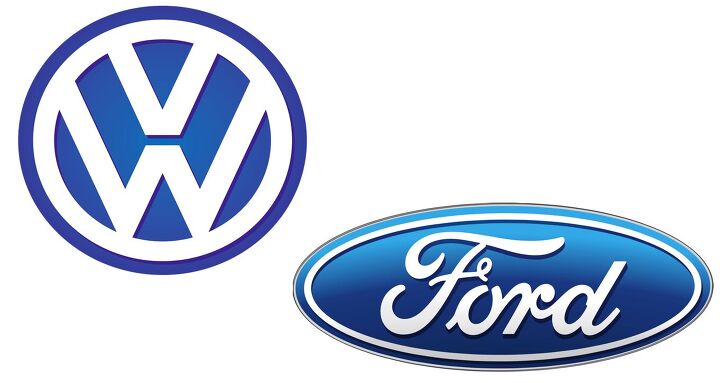
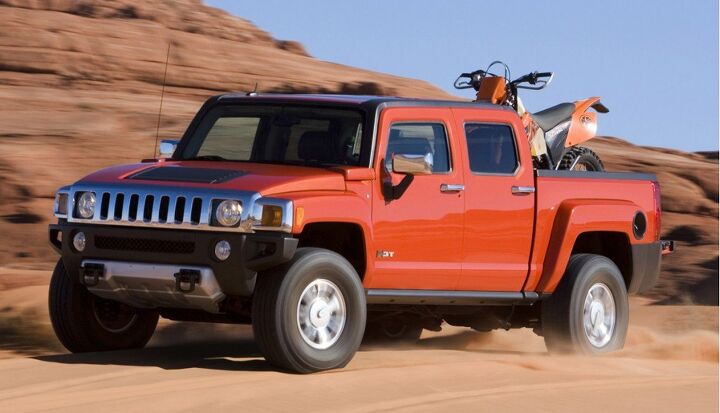


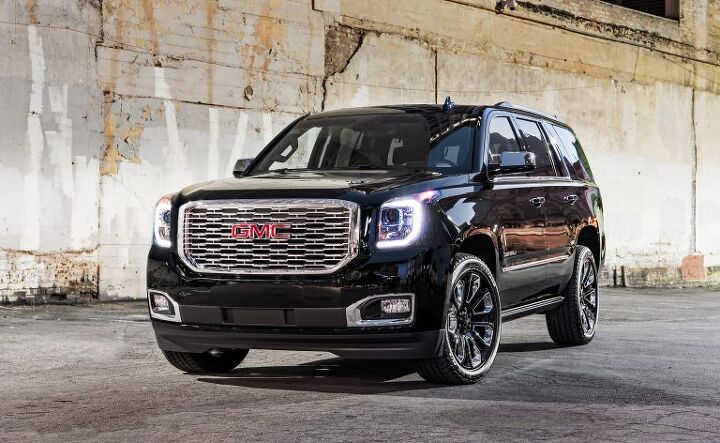





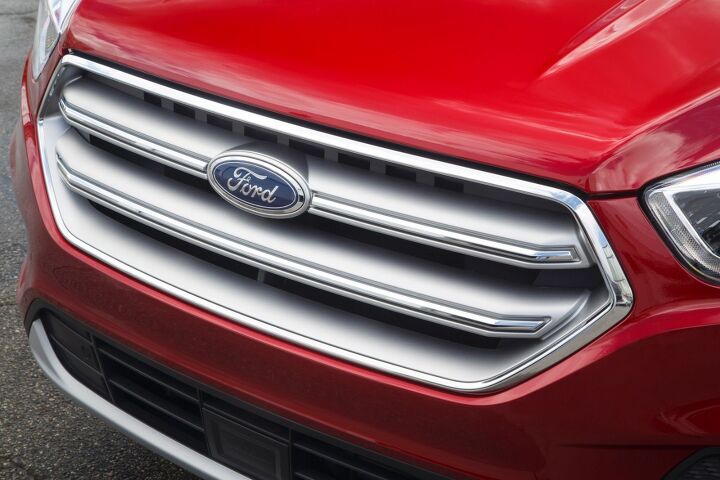

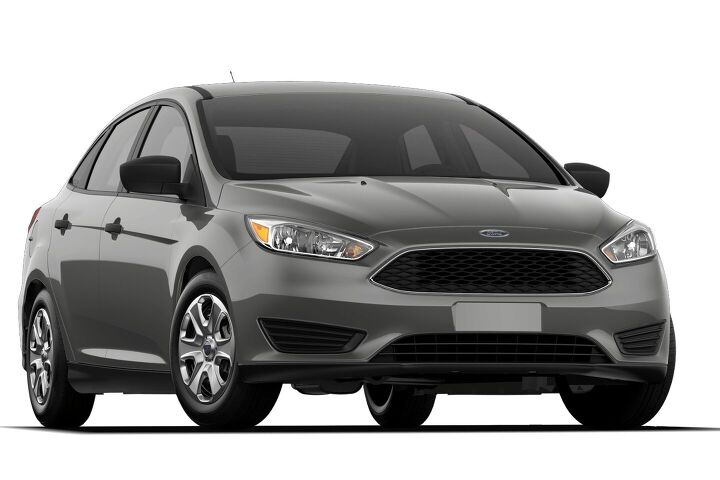
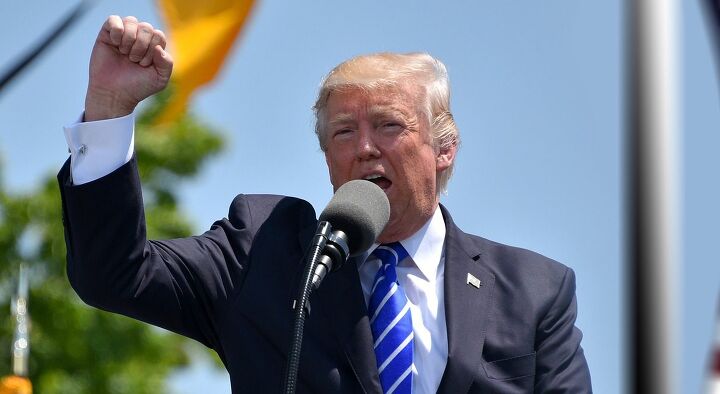
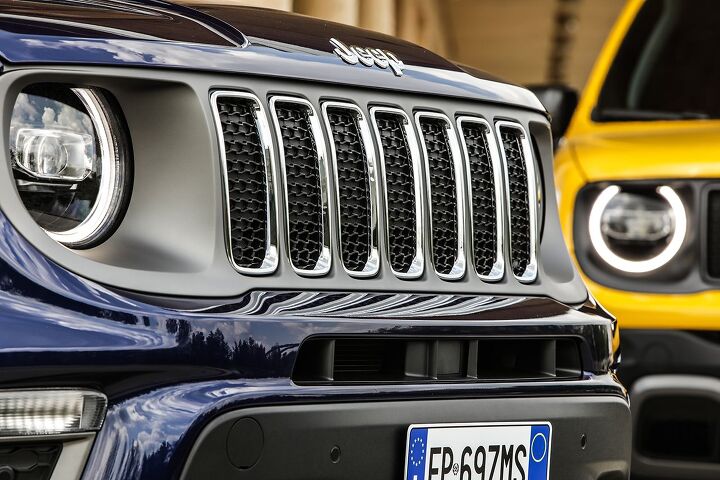
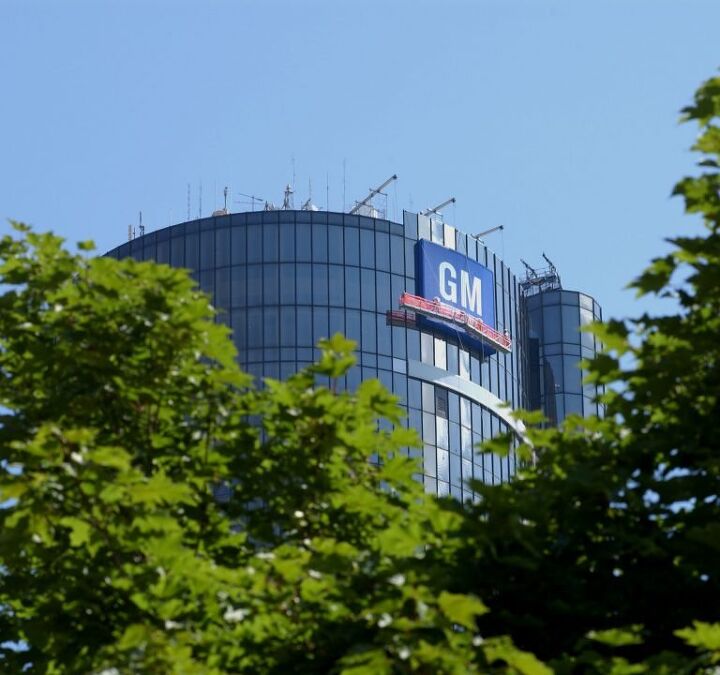


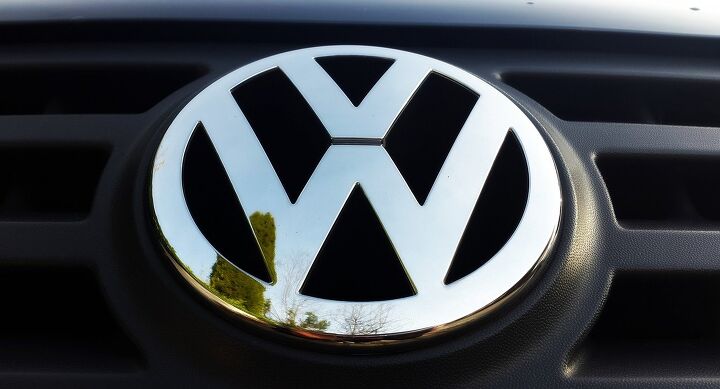





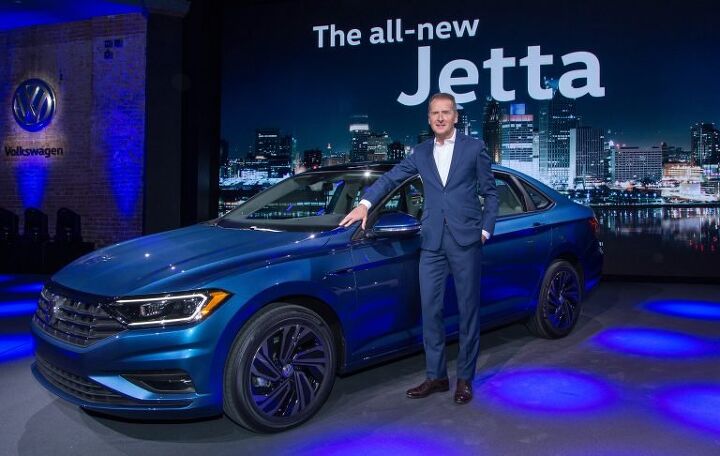



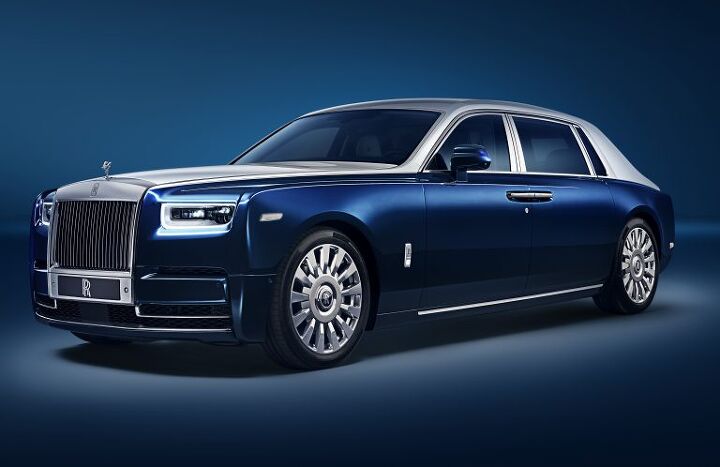


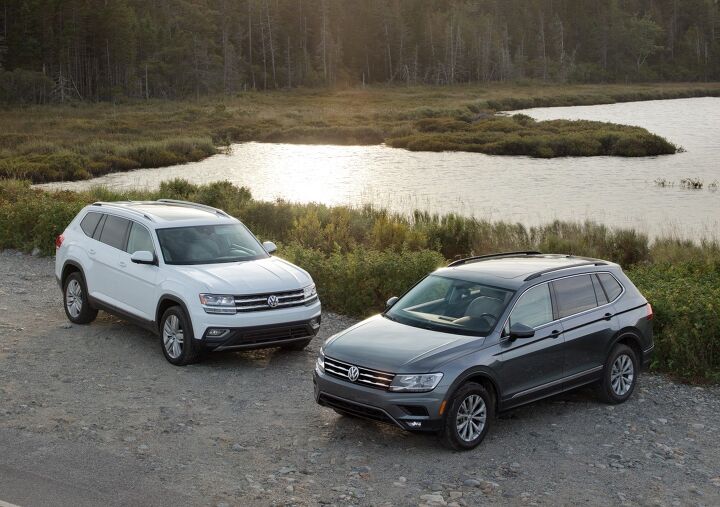

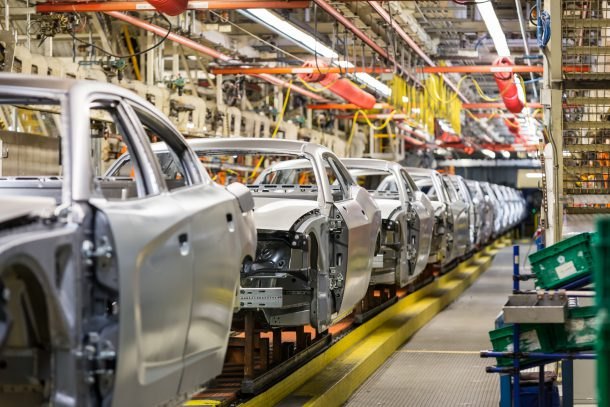
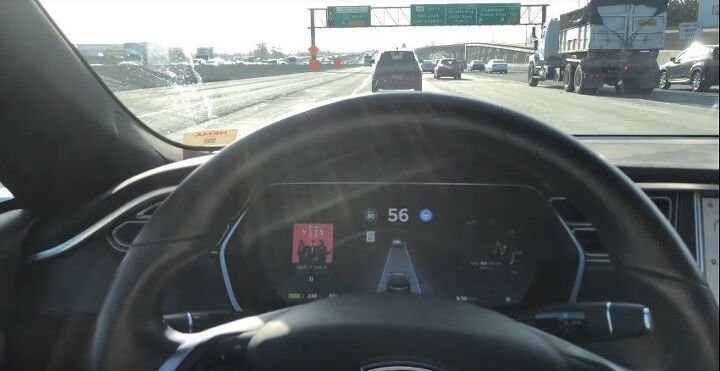
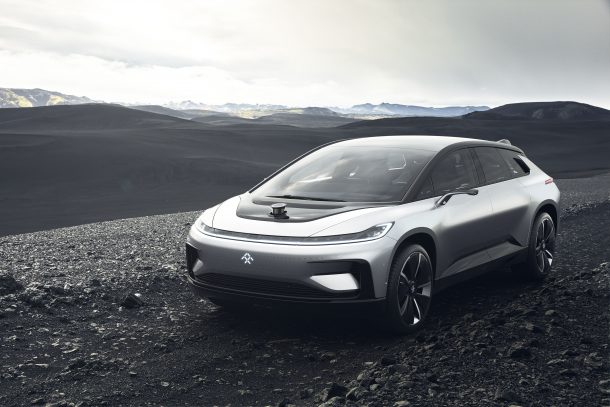






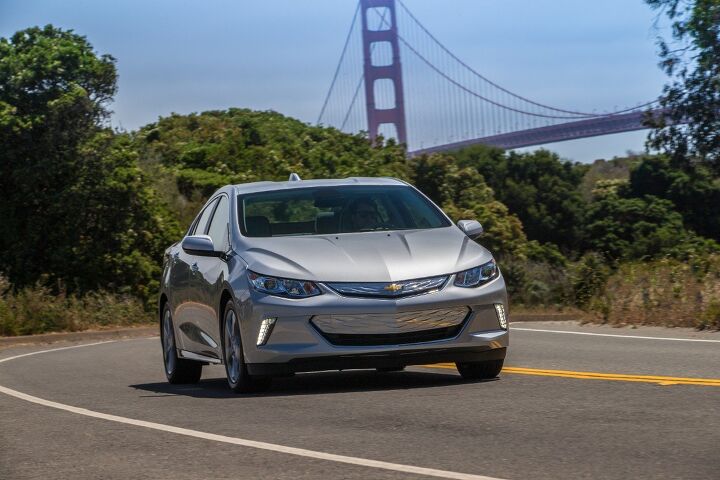
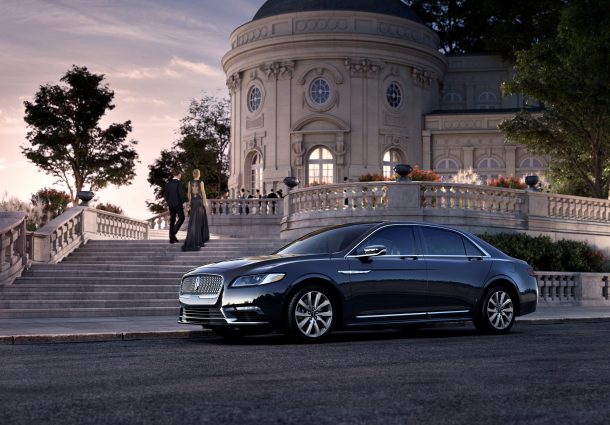



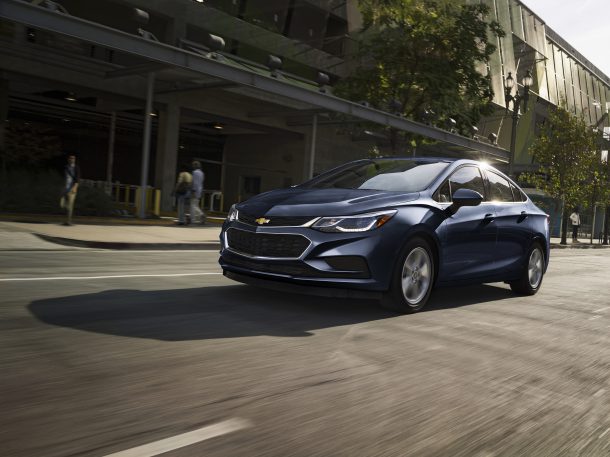
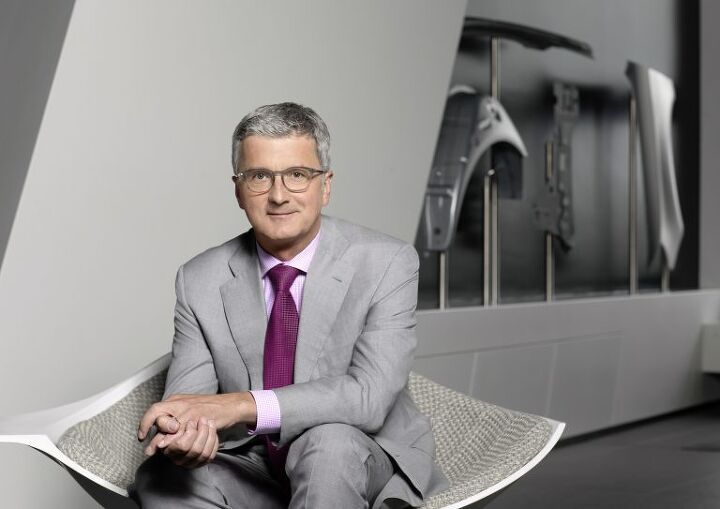
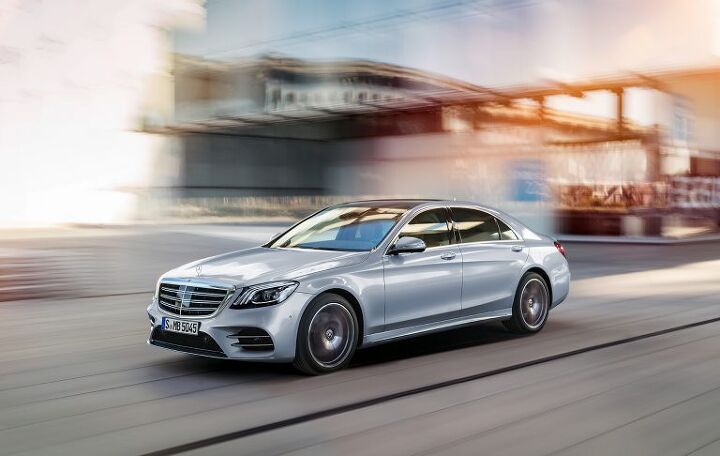

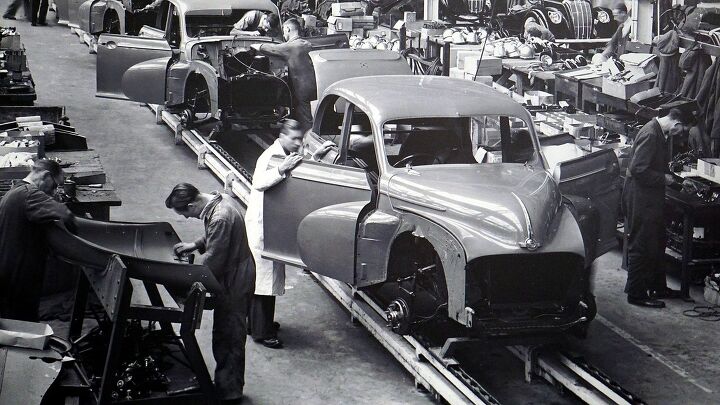





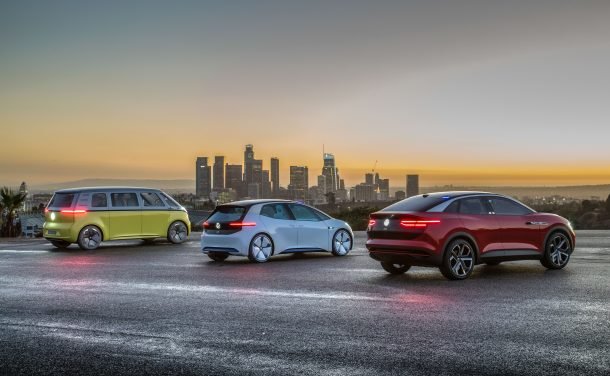












Recent Comments